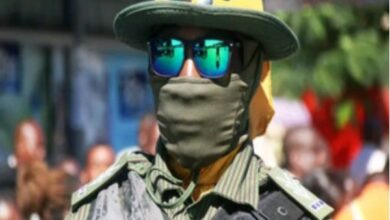
By Nurat Uthman
President Daniel Chapo, who assumed office last week, has dismissed the nation’s police chief, Bernardino Rafael, amid mounting allegations of police brutality and human rights abuses during and after Mozambique’s disputed October election.
The dismissal comes as opposition leaders and civil society groups accuse the police of excessive violence and complicity in suppressing dissent.
Rafael, in a statement earlier this week, admitted that 96 people, including 17 police officers, had died in the protests, claiming that officers acted in self-defense or that victims were struck by stray bullets.
However, civil society groups, including the Mozambique Centre for Human Rights and Democracy (CDD), dispute these figures, reporting approximately 300 fatalities.
The CDD has accused Mozambique’s elite National Criminal Investigation Service agents of infiltrating protest crowds and conducting house raids that led to arbitrary arrests and killings, describing the situation as having turned residential areas into “war zones”.
Adding to the controversy, police have denied involvement in the daylight killings of opposition aides Elvino Dias and Paulo Guambe, who were linked to opposition leader Venâncio Mondlane. Mondlane continues to claim he is the rightful winner of the disputed election.
Under pressure to restore public trust, President Chapo has appointed Joaquim Sive as the new police chief.
Sive previously held leadership roles in Sofala and Nampula but was suspended in 2019 following fatalities at a Frelimo party rally.
The president’s decision to replace Rafael is seen as part of broader efforts to rebuild confidence in government institutions.
Observers say Chapo’s administration faces significant challenges in addressing allegations of electoral fraud, human rights abuses, and police misconduct while fostering national reconciliation


